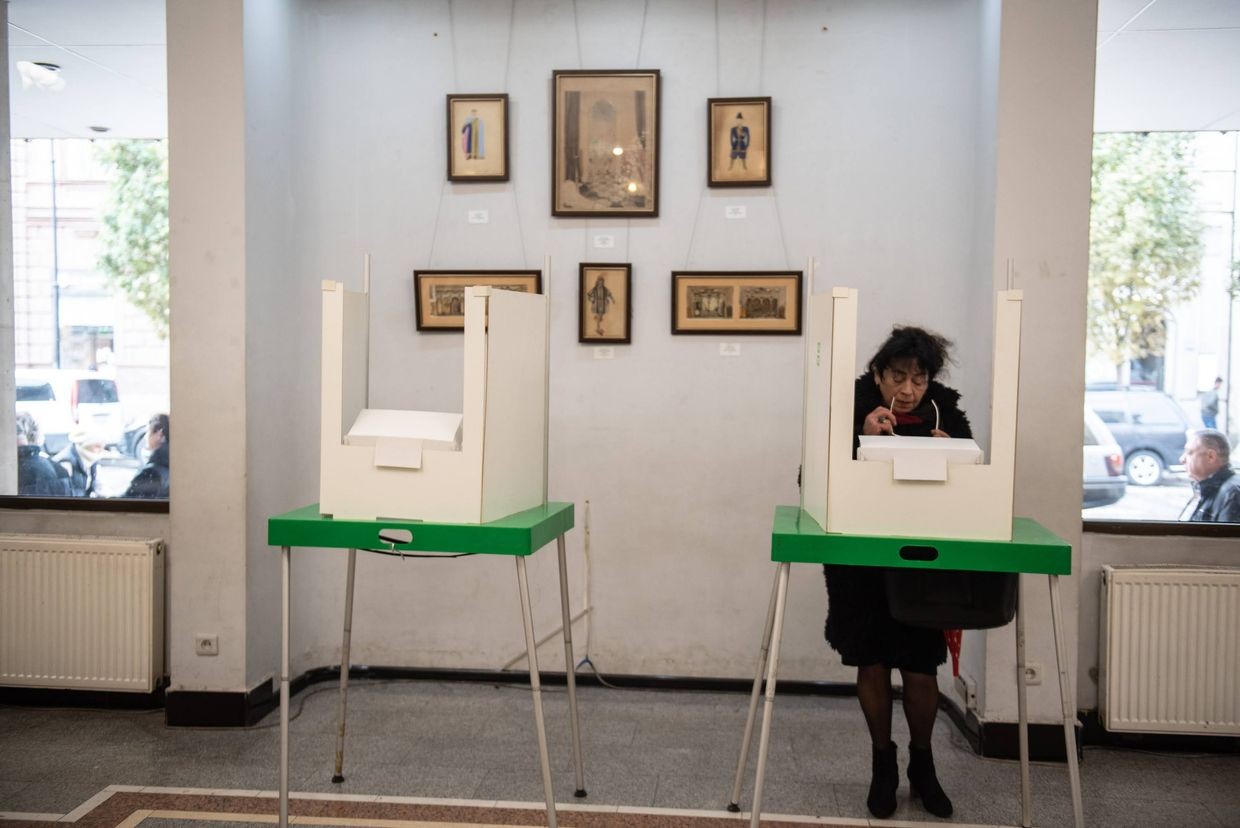
The ruling Georgian Dream party has announced plans to prevent Georgians residing abroad from voting in parliamentary and local elections, citing fears of ‘political pressure’.
Parliamentary Speaker Shalva Papuashvili announced that Georgians would no longer be able to vote from abroad during a press briefing on Monday.
According to pro-government media outlet Imedi, Papuashvili claimed that the decision was based on the obligation of the state to ensure the expression of free will in Georgia, as enshrined by Article 24 of the constitution.
He cited ‘external interference’ and ‘open and brutal informational and political pressure’ allegedly placed on Georgian voters abroad during the contested 2024 parliamentary elections — the results of which renewed Georgian Dream’s rule.
Georgians living abroad voted overwhelmingly for the opposition during the 2024 parliamentary election.
According to Papuashvili, exclusively holding votes in Georgia ‘increases the stability of elections, reduces the influence of external players, and ensures a more adequate, informed choice’.
He also claimed the model they intend to adopt ‘fully complies with international standards’ and is used in Ireland, Malta, Israel, and Armenia.
‘To emphasise once again, nothing changes in the voting rights of citizens living abroad. As before, all citizens of Georgia will have the full right and opportunity to vote in the elections. The only condition is to return to their homeland and vote in Georgia once every four years’, he said.
The changes to prevent voting from abroad would come as part of amendments to the electoral code, which Papuashvili said was ‘adopted in 2011 and has undergone more than 100 amendments since’, according to IPN.
‘As a result, the text has become difficult to understand, many norms are duplicated, a large part of the code is included in transitional provisions that are no longer valid in terms of content, and the structure needs to be regulated’, Papuashvili said.
Georgian Dream has several times amended the electoral code in the lead-up to the October 2024 elections and its aftermath, with most changes appearing to concern procedures overseeing the election of members of the Central Election Commission (CEC).
According to the elections watchdog ISFED, almost 95,000 Georgian nationals residing abroad were registered voters in the 2024 elections. However, the organisation noted in its report that the CEC ‘failed to sufficiently ensure the election participation of citizens living outside of Georgia and protect the principle [of] universal suffrage’.
‘Both the Ministry of Foreign Affairs and the CEC did not show due will and did not take all measures to open more polling stations abroad, including in cities where Georgia does not have diplomatic missions but many Georgian citizens live’, ISFED wrote in its report.

This article was translated into Azerbaijani and republished by our partner Meydan TV.










